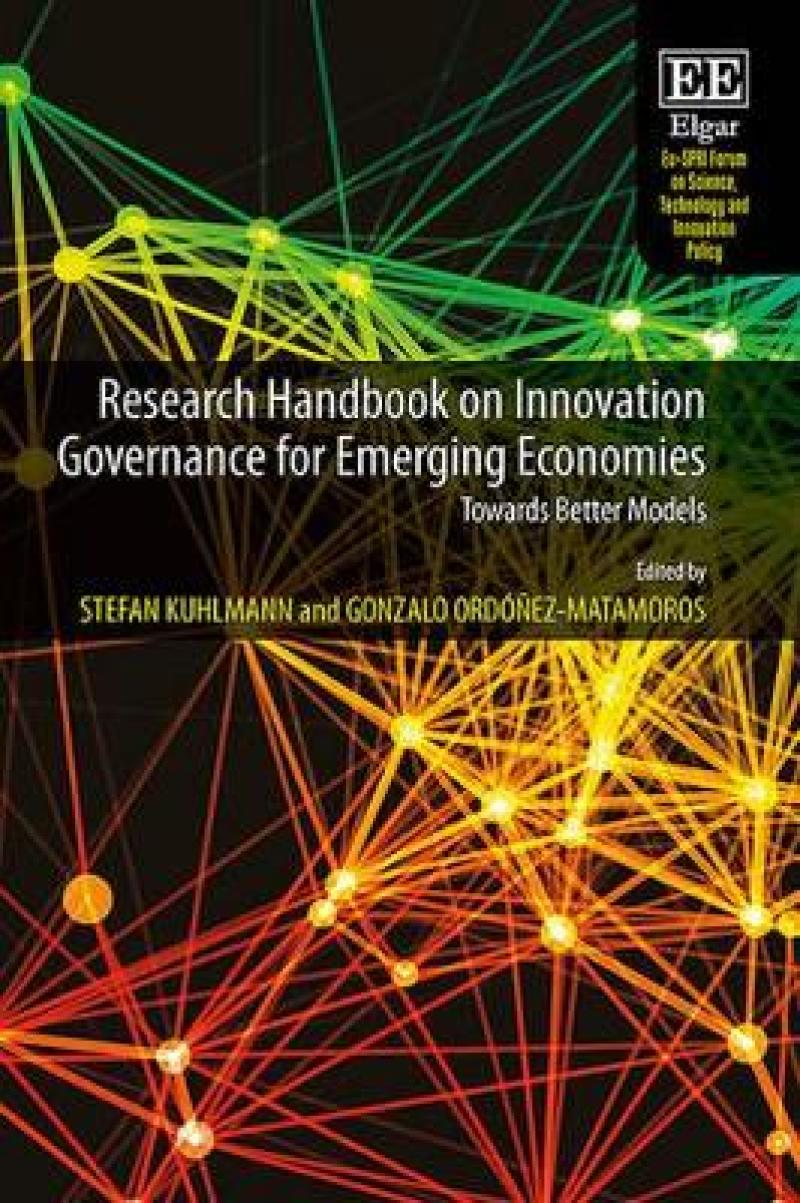<i>'This </i>Research Handbook<i> brings together critical and constructive voices from scholars from the Global South. They give examples from Africa, Asia and Latin America, illustrating barriers and opportunities when it comes to policy efforts to mobilize knowledge and innovation for inclusive development. The authors show that to turn barriers into opportunities requires a threefold effort: adaptation of theories to context, building policy capabilities and investing in social capital. This book represents a useful step toward defining more adequate development strategies balancing economic well-being with social inclusion.'</i>
- Bengt-Ake Lundvall, Aalborg University, Denmark,
<i>'This </i>Research Handbook <i>addresses head-on one of the main challenges of the 21st century: how to realize the new Sustainable Development Goals in emerging economies and developing countries. The contributors not only offer first-rate and original research, but also daringly take normative stances on how to better use knowledge, science, technology and innovation for development. The volume critically reviews existing innovation policies and convincingly offers a comprehensive set of alternative models. The turn from a traditional growth-based innovation policy to a more socially inclusive policy transcends the divide between development studies and science, technology and innovation studies. This book therefore is also highly relevant for the emerging field of RRI (Responsible Research and Innovation).'</i>
- Wiebe E. Bijker, Maastricht University, the Netherlands,
This book brings to the fore new concepts, theories and questions about the Global South, across multiple disciplines. It discusses specific country cases, exploring overarching patterns and lessons that address development bottlenecks and policy designs aimed at improving quality of life and economic progress in emerging economies.
Defining more adequate development strategies by balancing economic well-being with social inclusion, this book will be of great interest to scholars, students and policy makers of innovation, growth and development studies.
Contributors include: B.A. Adebowale, R. Arocena, L. Becerra, P. Catalán, C. Chaminade, P. Delvenne, A. Djeflat, G. Dutrénit, M. Fressoli, S. Garrido, P. Juarez, S. Kuhlmann, A.M. Loconto, S. Mani, G.M. Marcelle, G. Ordóñez-Matamoros, J. Orozco, A.A. Oyewale, R.P. Pérez, M. Puchet Anyul, B. Rennkamp, E. Robles-Belmont, M. Salazar, M. Scerri, E.F. Simbua, W.O. Siyanbola, J. Sutz, H. Thomas, F. Thoreau, D. Vinck, J. Voeten
